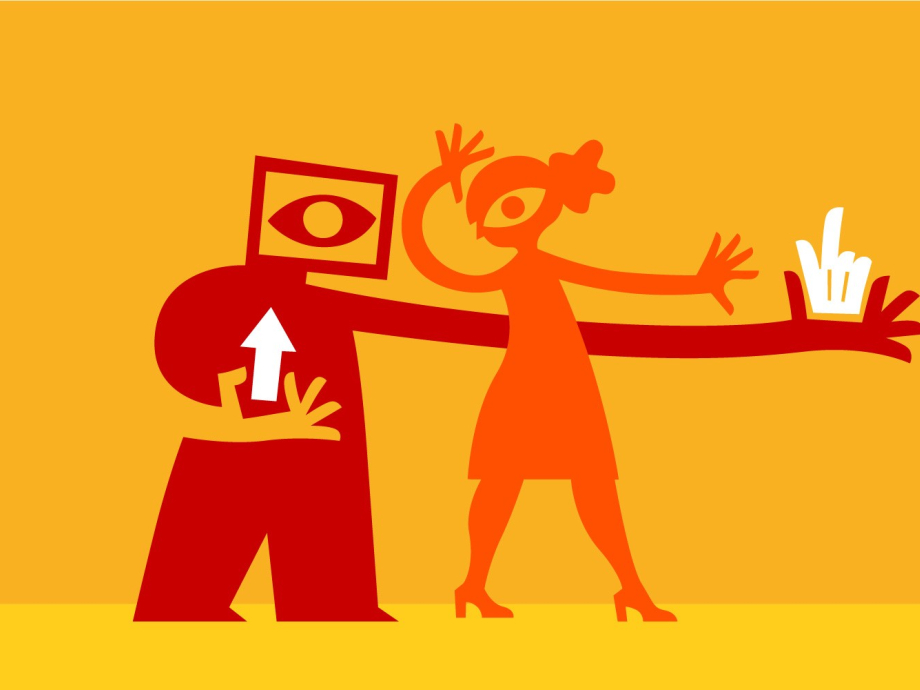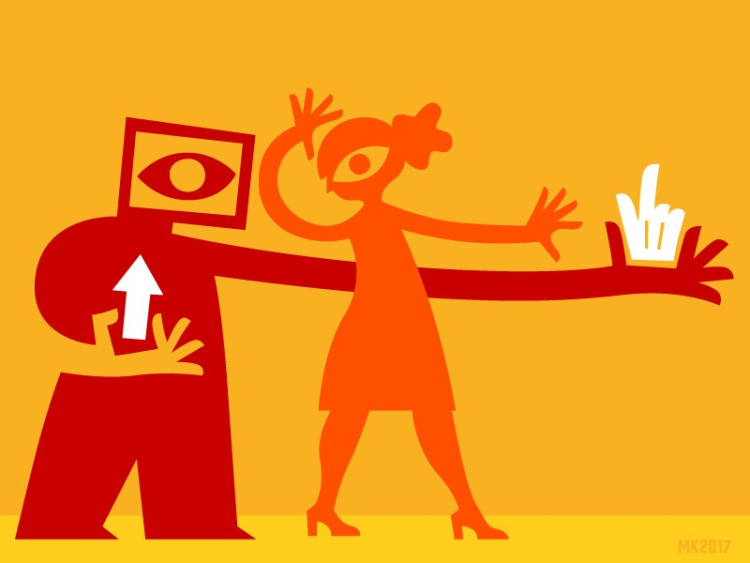ICTU: People with digital skills or services with people skills?
The extent to which people are digitally competent depends largely on how services are provided. Let’s improve the design and put user needs first.

By André Regtop, Director of the ICTU and ambassador for the ‘User Needs First’ community, and Victor Zuydweg, ICTU consultant and co-initiator of the ‘User Needs First’ community.
Reading time: 3 minutes
Be sure to read the other articles in the Decent Digitisation series.
Digital independence depends on mastering digital skills. Millions of people in the Netherlands are supposedly not digitally skilled enough. They are indeed missing the e-boat, a problem recently highlighted in a report by the National Ombudsman of the Netherlands. But that does not mean that these people are ‘digitally un-skilled’. Indeed, it says more about the extent to which digital services meet the needs of those who use them. After all, ‘[T]he share of the population that can manage their affairs independently in the digital domain and/or that require assistance doing so naturally also depends on the complexity of the service itself.’ (Translation of passage from Digitale Zelfredzaamheid van de burger).
What can government do?
ICTU is an independent government foundation that works with and for authorities at all levels to build a better digital government. We too find it important to ask ‘What can government do to optimise its digital services?’
We concur with the 2017 report Maak Waar by the Information Society and Government Study Group, which states that the digitisation of government requires a radical change in attitude. And: ‘Digital service delivery is at the core of the primary process of government organisations. It must be actively organised around the wishes and requirements of the public and businesses.’
But how?

Look at what users really need
The ‘User Needs First’ community thinks that online services can and should be more user-friendly. It is calling for government organisations to take a good look at those who use their services instead of putting the systems or the services themselves first. Looking at what users really need also helps boost people’s confidence in their digital skills and in government as a whole.
The ‘User Needs First’ community has drawn up a list of design principles for more user-friendly government services. Similar principles already underpin the service delivery of such commercial organisations as Android, Windows and Facebook and the governments of the UK and the US.
5 design principles for user-friendly government services
The five design principles for more user-friendly government services are:
- Put the user first
Base the design on people’s needs, wishes and behaviour, and not on the technology or your organisation. Have real users test the process and design early on. Look at what users actually need, and don’t be obstructed by organisational or departmental boundaries. - Don’t rest until your user is satisfied
Design, test, measure, improve and then do it all again, and again. At ICTU we work with iterative processes, often according to the Scrum methodology. We work incrementally right from the very start of the design process and test our outcomes continuously, leaving plenty of room for improvement. Even after implementation, there is a need to constantly monitor use and interpret the results. - Make it easy for the user
Design straightforward processes, create user-friendly systems and write comprehensibly. A straightforward process needn’t be simple, but it should always be clear to users where they are in that process, i.e. what they have already completed and what remains to be done. Service delivery doesn't start at the portal; how users get to the portal is at least as important. Are there links in relevant places? Is the service findable? And how do people know that they’ve arrived in the right place? - Base yourself on facts, not on assumptions
Base your design on facts and don’t assume that your user is just like you. Assumptions are made about the target group at every step of the process: demographic composition, needs, wishes, skills and behaviour. But ‘assumption is the mother of all f***-ups’, so test every single one. - Be transparent and share your knowledge
Cooperate and share your knowledge and experiences. Remember the maxim ‘Fail early, fail often, fail cheap’. The sooner you share results, the sooner you’ll get critical feedback, and the easier it will be to make changes. And as one unified government, we need to share lessons learned, both good and bad.
Let’s stop talking about how to help people become digitally skilled or digitally independent; let’s talk instead about how to improve our digital service delivery. Because maybe there’s no such thing as digital illiteracy. At most, there are ‘people-illiterate’ systems, i.e. systems that don’t know how to deal with real people.
Make digital facilities more people-literate
We can only increase the public’s digital independence by making digital facilities more people-literate. Once we manage to do that, we may well see an automatic improvement in the people skills of digital government services.
Visit the User Needs First and ICTU websites, or contact Victor Zuydweg.
Read more
Be sure to read the other articles in the Decent Digitisation series, and the related reports:
- Human Rights in the Robot Age. Challenges arising from the use of robotics, artificial intelligence, and virtual and augmented reality
- A fair share. Safeguarding public interests in the sharing and gig economy
- A never-ending race. On cyberthreats and strengthening resilience
- Urgent upgrade. Protect public values in our digitized society